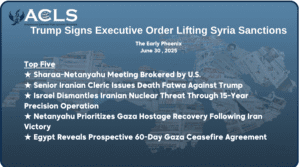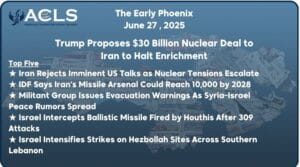1. Turkey’s Military Operations in Northeast Syria: A Path to Destruction and Civilian Casualties.
The escalation of Turkish military operations in northern and eastern Syria has led to widespread destruction and civilian casualties. Over the past 72 hours, Turkey has launched aerial and ground bombardments on 80 locations in the area, targeting infrastructure and service institutions. The attacks resulted in the injury of 7 civilians, including a woman and two children. Turkish forces bombarded seven villages along the contact line in Manbij, northern Syria, using heavy weaponry and mortar shells. The Manbij Military Council reported renewed bombing on villages in northern and western populated areas. In a rare move, the official news agency affiliated with the Assad government reported on the Turkish attacks. The following report of strikes are from the Syrian Observatory for Human Rights in London:
- A major fire at the Suwaidia Gas Plant in rural Hasakah due to targeting by Turkish drones.
- Disruption of drinking water supply in northern Hasakah due to targeting of power stations that supply water wells.
- Bombing of the oil refinery in Qahtaniyah and the Ouda station.
- Direct targeting of the power generation station in Qahtaniyah, leading to its shutdown.
- Targeting of an internal security checkpoint in Khazna and a driving school in Karbawi village, rural Qamishli.
- Ouda oil station and an oil station in Qahtaniyah, and a power station in Qahtaniyah.
- Turkish artillery shelling of Harmala, Kasrat, and Hajj Musa villages.
- Bombing of Sinjar Mill in rural Amuda, resulting in two injuries.
- Bombing of a military intelligence unit in Dhiban village south of Qamishli, killing 3 regime forces.
- Bombing of a private mill in Sinjar village south of Amuda, injuring a child.
- Targeting of civilian homes in several villages in rural Hasakah.
- Bombing of a power transformer station in Qamishli near the Basil statue roundabout.
- Targeting of an electricity company and a car repair workshop in Ain al-Arab city, and dairy farms in Sheikh Joban village.
The continued Turkish attacks in northern and eastern Syria have put Al-Khayrat Mill, the second-largest wheat mill in the region, out of service. Turkish forces deliberately target vital installations and infrastructure, disrupting basic services and threatening to starve the population. The mill, crucial for flour production and bread supply for many families, suffered damages estimated at about 750 million Syrian pounds, and it is expected to cease operations for at least a month for repairs. The Suwaidia station is a vital source of electricity and gas for residents in northern and eastern Syria, and its repeated targeting is considered a war crime and a violation of international law. The cost of repairing the damage from previous attacks is estimated to be millions of dollars.
In a poignant incident, Bervian Mohammed, aged 33, was killed in a Turkish airstrike targeting the Semaf Printing Press in Qamishli. Mohammed, who worked at the press as a warehouse keeper and accountant, was known for her good character and dedication to her job. Despite the daily tensions in the Qamishli area, she was committed to her family’s safety. The attack that claimed her life also resulted in the death of five others and injured many, highlighting the severity of the military escalation in the region.
2. Iran’s Military Operations in Syria: Escalation and Regional Impacts.
Amidst evolving security dynamics in Syria, the Iranian Revolutionary Guard Corps has executed long-range missile strikes on several targets within Syrian territory. According to official Iranian statements, these strikes aimed at ISIS locations were in retaliation to previous attacks. However, other reports indicate that the strikes resulted in casualties at a medical facility in rural Idlib, raising questions about the accuracy of the declared targets. There were also reports of Israel launching missiles towards Syria last night, which the Syrian air defenses reportedly intercepted, as stated by Syrian regime sources. Nevertheless, no confirmation of these reports was found in global, regional, or local media outlets specializing in direct news coverage of bombings in northeastern Syria. The Syrian Observatory for Human Rights initially reported the bombing as Israeli but later corrected the information, indicating the missiles’ origins were unknown. Additionally, some experts suggested the possibility of the missiles being Iranian.
Following these operations, U.S. forces in the region have heightened security measures, including the removal of the American flag from one of the potential target bases. This development signifies escalating tensions between Iran and other military powers active in the region. Complicating the regional military dynamics further, Russia has deployed additional forces in northern Deir Ezzor, impacting the current balances. These Iranian attacks clearly indicate Tehran’s readiness for military escalation, with significant political implications for regional conflict parties. These events also directly affect international relations, especially between Iran and Western countries, including the United States, highlighting the security and political challenges in the Middle East.
Possible Scenarios of Iranian Military Strikes: In a conversation with the AI program Data Analyst regarding potential scenarios for Iranian military operations, the analyst considered the field to be variable and complex, depending on several interrelated factors. The following scenarios were outlined:
- Continuation of Iranian missile strikes: Iran might continue using missile strikes as a means to exert political and military pressure, especially if it feels a direct threat to its interests.
- Escalation of tensions with the United States: Iranian military actions could lead to increased tensions with U.S. forces in the region, raising the likelihood of clashes.
- Fueling local conflicts: Iranian strikes could escalate conflicts in Syria, particularly among different armed factions.
- Israeli response: Israel, concerned about Iranian influence in Syria, might increase its military intervention in response to Iranian activities. Interventions by other international powers: Developments might compel regional and international powers to intervene or adjust their policies in response to new developments. Data Analyst emphasized that these predictions are based on the analysis of current and past conditions and remain open to change with the evolution of events. The situation in the Middle East is characterized by complexity and constant change, and any slight shift in variables can lead to significant transformations in these scenarios.
3-Russian Bombing Targets Idlib, Results in Civilian Casualties.
In a significant development, the city of Ariha in southern Idlib countryside witnessed a rocket attack by Syrian regime forces, resulting in the death of one civilian and injuries to eight others, including two girls and a woman. According to the Syrian Civil Defense (White Helmets), the bombing targeted residential areas and locations near mosques and medical facilities, indicating tactics aimed at civilian infrastructure.



